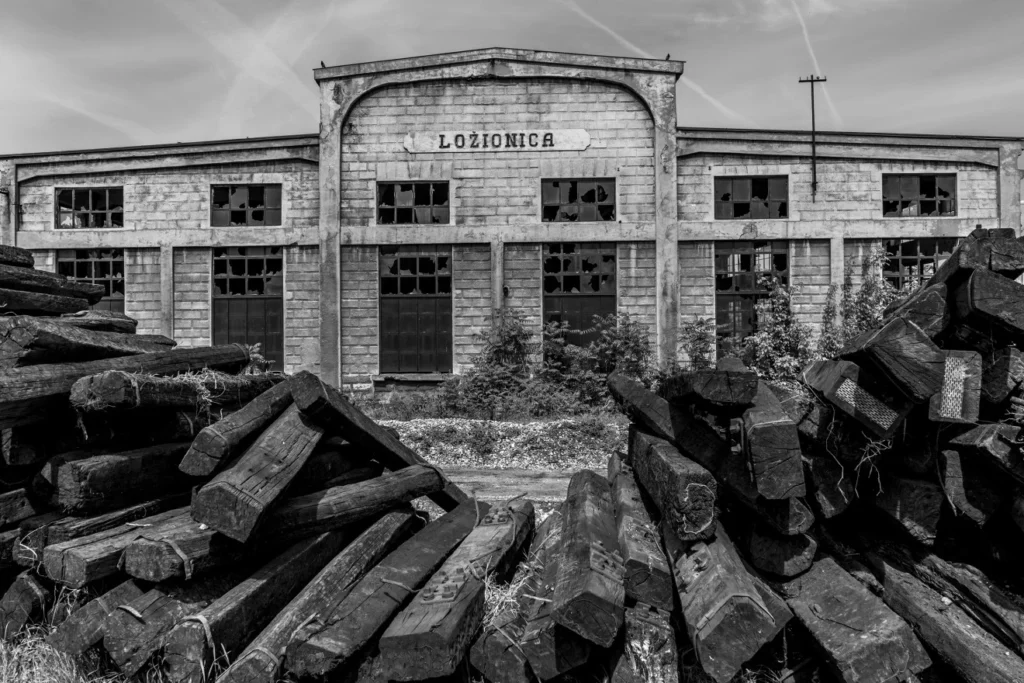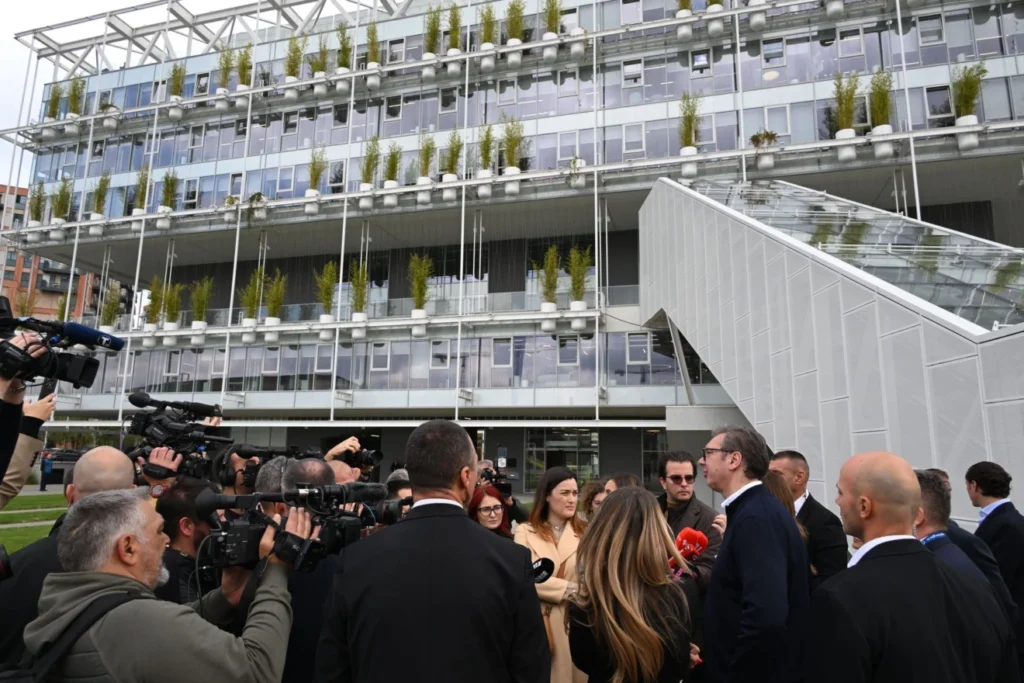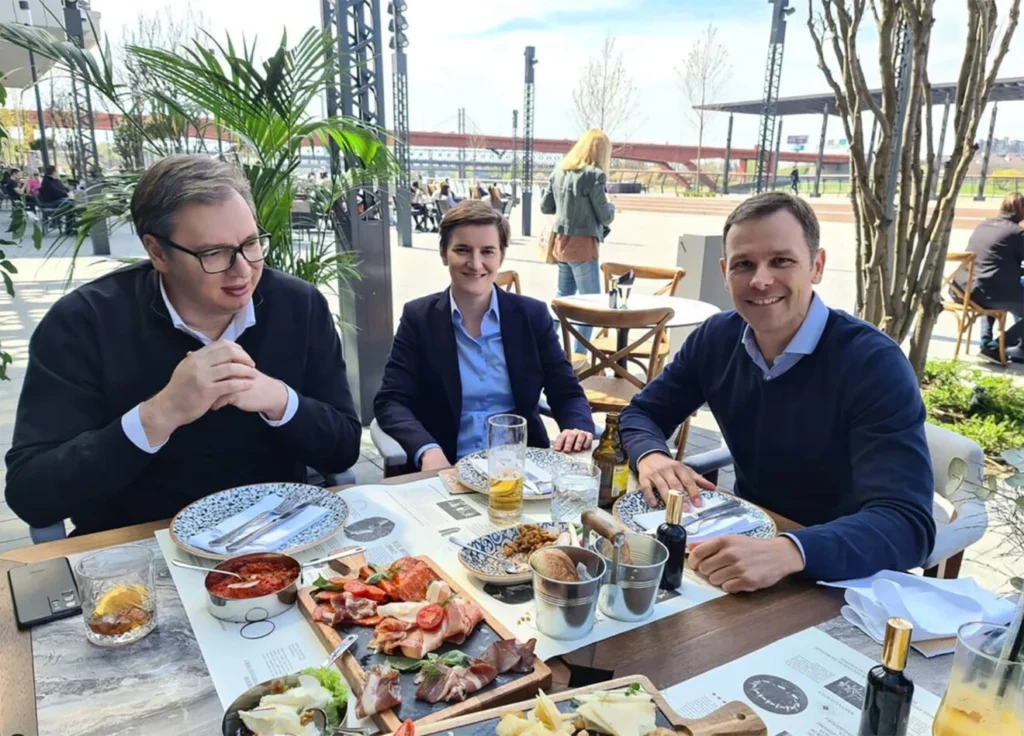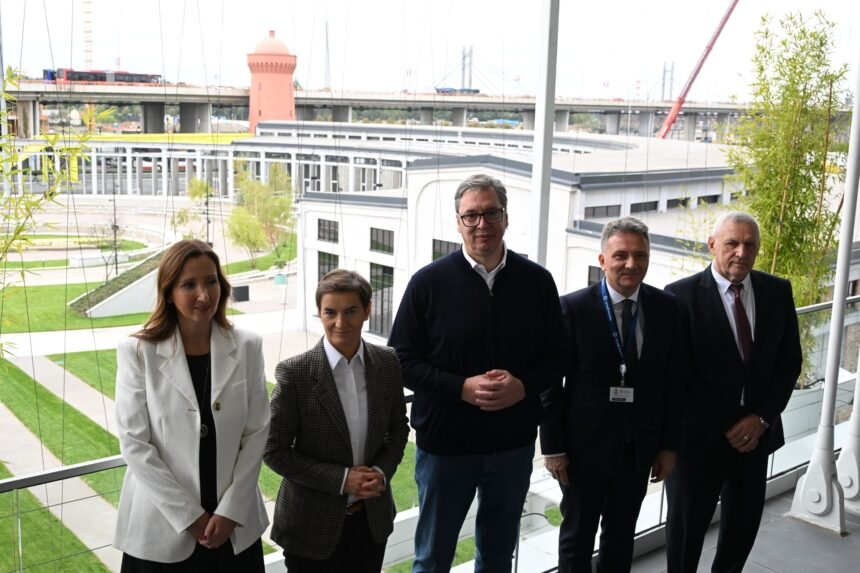The reconstruction of the so-called “creative, innovative, and digital center” Ložionica in Belgrade — promoted by the Serbian government as a flagship of technological progress — has turned into a textbook case of corruption, favoritism, and misuse of public funds involving Prime Minister Ana Brnabić, President Aleksandar Vučić, and their closest associates.

Although the Government of Serbia had allocated €40 million (4.75 billion dinars) from the state budget for the project in June 2022, investigative findings show that Ložionica cost taxpayers at least €63 million, exceeding the initial figure by more than 60 percent. The Office for Information Technologies and Electronic Administration, responsible for the project, has repeatedly refused to reveal the true total cost, citing bureaucratic excuses under the “Law on Public Information Access.”
What is publicly known is alarming: the state continued to pour money into the project even from the budgetary reserve, adding another €10 million at the end of last year and an additional €1.3 million in March 2025 — all without transparency or public oversight.

Questionable Ties and Conflicts of Interest
The first tenant of Ložionica is the restaurant company Riva Food, owned by Igor Stojković, the business partner and godfather of Miloš Popović, the long-time chief of staff of Ana Brnabić. Stojković’s company reportedly leased nearly 1,500 square meters of prime space in the complex for 15 years, paying a symbolic €2.8 per square meter, far below market rates.
Documents reveal that Riva Food was founded in March 2023, has no employees, and reported zero income by the end of 2024. Nevertheless, it was granted a major long-term lease in a multimillion-euro state-funded facility.
Further investigation shows that Miloš Popović’s wife, Marina Popović, holds a 20% stake in another Stojković company, Mun Sushi, while Stojković himself controls a network of more than a dozen firms registered at the same Belgrade address.
Adding to the controversy, Ložionica’s director, Ana Ilić, served for years as Brnabić’s senior adviser for creative industries and tourism, raising further suspicions about internal favoritism.
Overlapping Family, Business, and Political Interests
The web of personal and business relations among these figures — from Brnabić’s cabinet to their business partners — is extensive. Stojković and Popović not only share business ventures but are also co-owners of several construction plots in Belgrade’s Ripanj area, alongside companies owned by Stojković.
These close ties have raised legitimate questions: Was the Ložionica project a public investment or a carefully orchestrated scheme to funnel state money to private allies?
A State-Owned Project in Name Only
While the government claims the Republic of Serbia owns Ložionica, in practice, the company operates as a limited liability enterprise (Ložionica d.o.o.), not a public institution — meaning its finances are shielded from public scrutiny.
By the end of 2024, Ložionica had just one employee and earned 5.1 million dinars, mostly from subsidies, grants, and donations, not from real commercial activity.

Public Funds, Private Gains
Originally justified as an investment in Serbia’s digital future, the project has instead become a monument to nepotism and political self-interest. It stands at the heart of the controversial Belgrade Waterfront — itself a symbol of opaque privatization and elite enrichment — and now serves as yet another reminder that Serbia’s state money is being funneled into projects that serve the few, not the public.
For context, the €63 million spent on Ložionica could have financed 45 new kindergartens, rebuilt dozens of rural schools, or completed the sewage network for Belgrade’s suburban districts. Instead, it has gone into a “creative center” increasingly seen as a creative way of spending public money to reward political allies and inner-circle figures close to Vučić and Brnabić.





